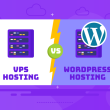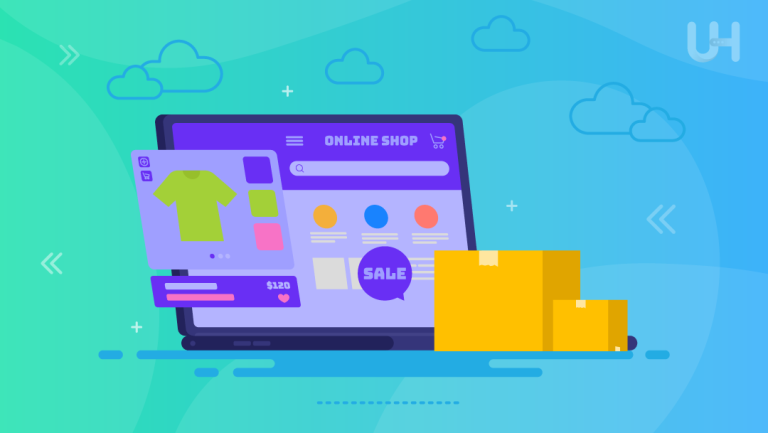Are you looking for the best eCommerce platforms for clothing and fashion stores in 2025? Then you have come to the right place. In this blog, we will compare the five best clothing eCommerce platforms to help you set up your online fashion brand. From evaluating their key features to analyzing their pros and cons, we pitted the five most popular eCommerce platforms to help you find the right one for your business.
As the eCommerce clothing business flourishes, the competition will get steeper in the coming days. If you want a slice of the revenue, you need all the help you can get. Choosing the right eCommerce platform can simplify your life, from product listing and inventory management to pricing, shipping, and after-sales support. But before diving into the details, here is a quick overview of the factors to consider before making up your mind. Let’s go!
What Factors Should You Consider When Comparing the Best eCommerce Platforms for Clothing?
You must consider the following factors when finding the best eCommerce platforms for clothing and fashion stores.
Customization and Design
Your shortlisted eCommerce platform should offer flexibility to customize themes that reflect your brand’s identity. Platforms like Shopify and Wix excel in user-friendly designs, while WooCommerce and Magento allow advanced customization for unique store layouts. This is crucial for fashion-forward brands prioritizing aesthetic appeal and differentiation.
Product and Inventory Management
Efficient management of clothing variants (e.g., sizes, colors, and styles) is essential. Platforms like BigCommerce and WooCommerce support advanced inventory tools, including size charts and seasonal catalog updates, making them ideal for businesses with extensive product lines.
Mobile Responsiveness
With a growing number of customers shopping via mobile devices, a responsive platform is non-negotiable. Magento and Shopify lead the way in offering mobile-optimized themes that ensure smooth navigation and checkout on smaller screens.
SEO and Marketing Tools
SEO capabilities and integrated marketing tools help drive traffic and conversions. WooCommerce and WordPress excel in SEO optimization, while Shopify provides built-in email marketing tools to engage your audience effectively.
Payment and Shipping Integration
Seamless payment gateway and shipping options are crucial for eCommerce stores. Shopify and WooCommerce provide extensive integrations, while Magento allows more customization for specific logistics needs. So, you must choose a platform that fits your needs.
5 Best eCommerce Platforms for Clothing Stores Compared
Here are the five best eCommerce platforms for clothing brands in 2025. We compared the key features, pros, and cons to help you choose better.
Shopify

Shopify is a user-friendly, all-in-one solution widely used by clothing businesses of all sizes. Its highlights include extensive templates, mobile responsiveness, a robust app ecosystem for additional functionality, and seamless integration with powerful 10Gbps dedicated servers. Key features include built-in marketing tools, seamless inventory management, and multi-channel selling. However, it charges transaction fees if you don’t use Shopify Payments, and lower-tier plans limit customization options.
Key Features
- Multi-Channel Selling: Seamlessly integrates with platforms like Instagram, Facebook, and Amazon, allowing fashion businesses to reach a broader audience.
- Extensive App Store: Offers apps for inventory management, marketing, and custom features to optimize the online shopping experience.
- Responsive Themes: Provides a wide range of professional, mobile-friendly themes ideal for showcasing clothing collections.
Pros
- Excellent 24/7 customer support ensures quick resolution of issues
- Reliable hosting with minimal downtime enhances site performance and customer experience
- A streamlined onboarding process helps beginners quickly launch online stores
Cons
- Limited flexibility for advanced customizations without developer assistance
WooCommerce
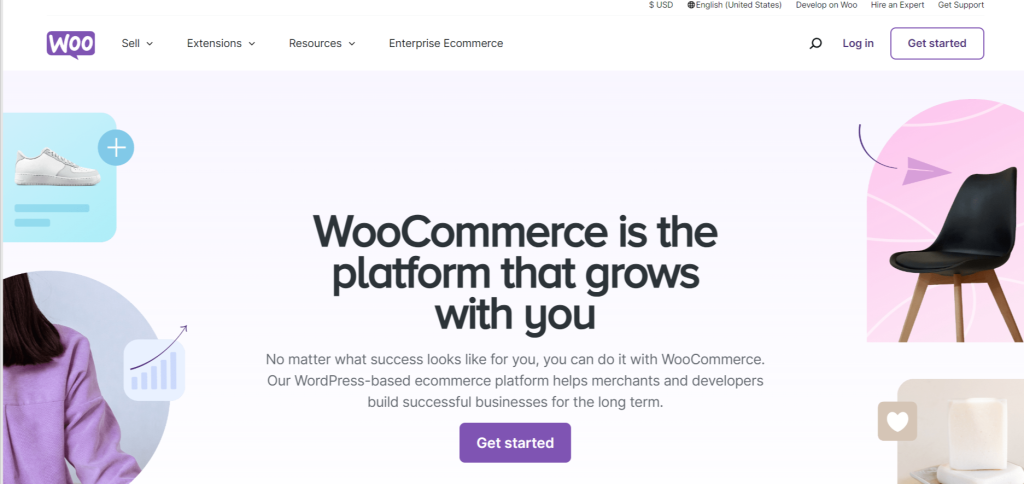
Built on WordPress, WooCommerce provides unmatched flexibility and control, making it ideal for businesses wanting tailored online stores. It excels in content marketing and SEO optimization and supports extensive customizations through plugins. Although open source and free to use, businesses must account for hosting costs and technical expertise to maximize its potential.
Key Features
- Customizability: Open-source platform with extensive plugins for tailoring the store to specific needs, from product pages to checkout flows.
- SEO Optimization: Built on WordPress, WooCommerce excels in optimizing websites for search engines, enhancing visibility.
- Product Variants: Supports complex product catalogs with options like sizes, colors, and materials, ideal for clothing stores.
Elevate Your Business with WooCommerce Hosting
Turn up the speed and boost your sales with Ultahost’s WooCommerce hosting. Our WooCommerce hosting plans are powered by LiteSpeed for blazing-fast performance. Sell with confidence as our servers both secure and scalable. Unleash 5x speed, boost sales, and keep customers happy.
Pros
- A large WordPress community offers extensive support and resources
- Cost-effective for small businesses with a budget-conscious approach
- Frequent updates ensure compatibility with plugins and security patches
Cons
- Requires technical skills or developer support for advanced configurations
BigCommerce
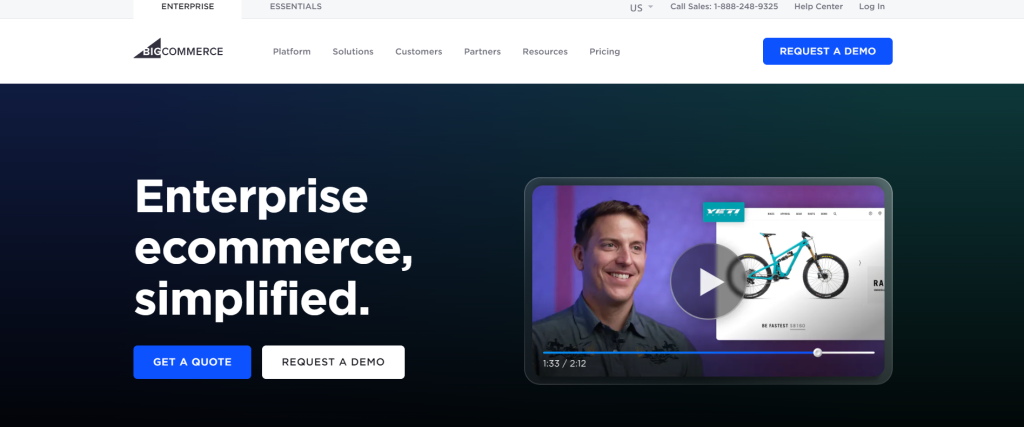
BigCommerce is known for scalability, making it suitable for both startups and growing clothing brands. It offers advanced features like product filtering, abandoned cart recovery, and detailed product variant management. It supports seamless integration with marketplaces like Amazon and eBay, but its steep learning curve and pricing tiers may not suit beginners.
Key Features
- Scalability: Handles large inventories and high traffic seamlessly, making it perfect for growing clothing brands.
- Advanced Features: Includes faceted search, custom fields, and advanced analytics to enhance the customer experience.
- Integration Capabilities: Offers built-in integrations with major marketplaces and tools like PayPal, Amazon, and eBay.
Pros
- No transaction fees, reducing overall costs for high-volume sellers
- Built-in sales tax tools simplify compliance across multiple regions
- Excellent SEO features boost organic traffic to clothing stores
Cons
- Limited control over checkout page customization due to platform restrictions
Wix eCommerce
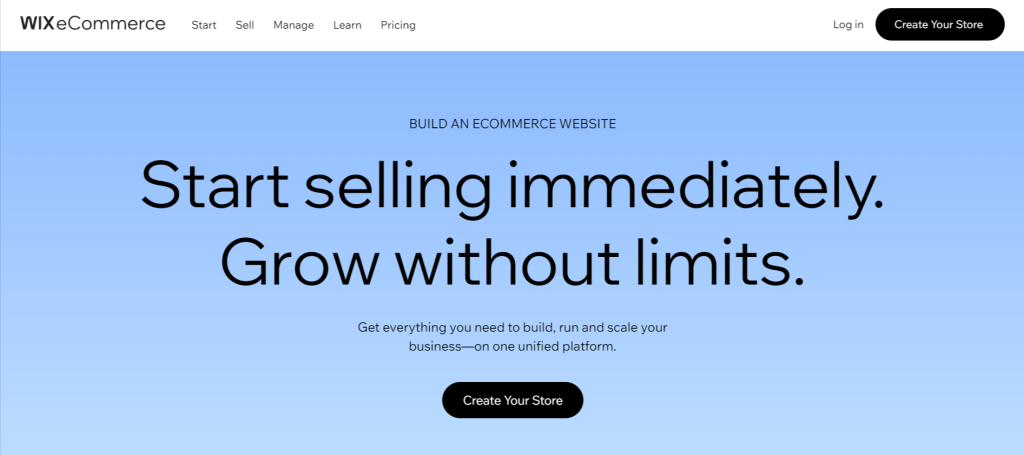
Wix is an excellent choice for small clothing businesses or brands focusing on design and aesthetics. Its drag-and-drop builder, mobile-friendly templates, and integrated marketing tools make it easy for beginners. However, Wix may lack the advanced scalability and inventory features required by larger businesses.
Key Features
- Drag-and-Drop Builder: Simplifies website creation, allowing visually stunning storefronts without coding knowledge.
- Marketing Automation: Built-in tools for email campaigns, social media marketing, and abandoned cart recovery.
- Mobile Optimization: Fully responsive templates ensure a seamless shopping experience across devices.
Pros
- Low-cost plans make it accessible to startups and small businesses
- An intuitive analytics dashboard provides insights into store performance
- Social media integrations simplify brand promotion across platforms
Cons
- Less suitable for large-scale businesses due to limited scalability
Adobe Commerce (Formerly Magento)
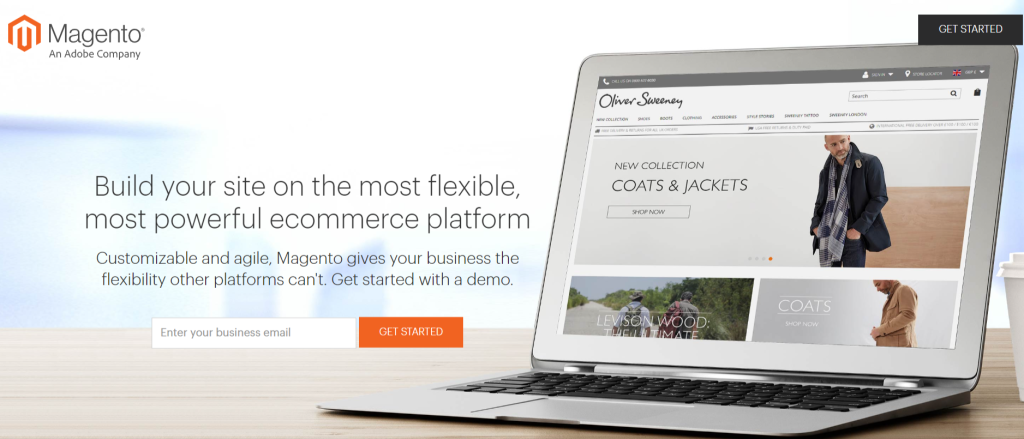
Magento/Adobe Commerce is a robust platform for large-scale clothing operations with complex requirements. It offers extensive customization, multi-store management, and enterprise-level features like advanced reporting and B2B support. However, it requires significant technical expertise and resources for setup and maintenance, making it more suited for established brands with in-house technical teams. But if you have the in-house infrastructure, our powerful Magento hosting plan will elevate your business to the next level.
Key Features
- Customization and Flexibility: Offers highly tailored designs and functionalities, making it ideal for large, complex stores.
- Multi-Store Management: Supports managing multiple stores with unique inventories, perfect for global clothing brands.
- Advanced Marketing Tools: Includes personalized promotions, dynamic pricing, and loyalty programs to boost customer engagement.
Pros
- Comprehensive multilingual support enables global brand expansion
- Strong focus on security with regular updates and patches
- Supports headless commerce for advanced, future-ready solutions
Cons
- High development and maintenance costs make it expensive for small businesses
Conclusion
That concludes our list of the best eCommerce platforms for clothing and fashion brands in 2025. We compared the most powerful eCommerce platforms on the market to help you find the right one for your application. Each platform has its quirks and features, making it ideal for diverse applications. Hence, we recommend familiarizing yourself with their key features, pros, and cons before deciding.
Are you looking for a reliable web host for your eCommerce business? Choose Ultahost’s powerful eCommerce hosting plans and jumpstart your business. Enjoy SSD NVMe storage, free SSL certificates, and built-in security updates, starting at just $3.80 per month.
FAQ
Which is the best eCommerce platform for clothing brands?
Shopify is our top pick for most clothing brands due to its user-friendliness, design templates, and multi-channel selling capabilities.
How do I find the best eCommerce platform for clothing and fashion websites?
You should evaluate your needs, including budget, customization, scalability, and features like SEO, product management, and marketing tools, to find the best platform.
Why do I need an eCommerce platform for my clothing business?
An eCommerce platform simplifies selling online, offering tools for showcasing products, managing orders, and reaching a wider audience.
What are the benefits of using an eCommerce platform for clothing?
Platforms provide design flexibility, inventory management, payment processing, and SEO tools to boost visibility and streamline operations.
Are eCommerce platforms SEO-ready?
Most eCommerce platforms, like WooCommerce and BigCommerce, offer built-in SEO tools for optimizing product pages and driving organic traffic.
How to integrate an eCommerce platform with my existing WordPress website?
Use plugins like WooCommerce or Shopify Buy Button to seamlessly connect an eCommerce platform to your WordPress site.
How much money should I spend on an eCommerce platform for clothing?
Ideally, you should spend as little as possible on an eCommerce platform for clothing when starting your business. As revenue increases, you can upgrade to a premium plan.




